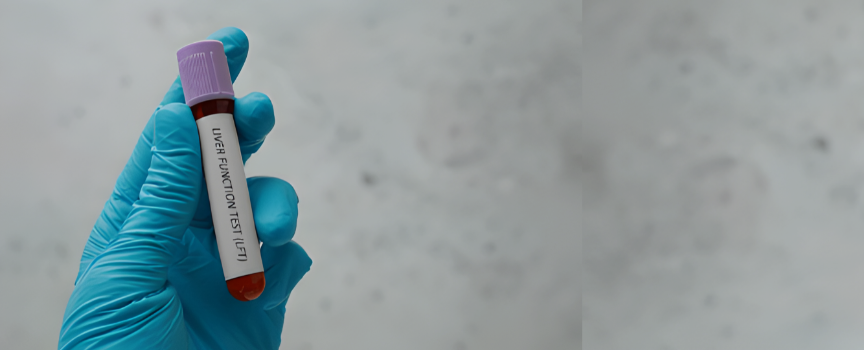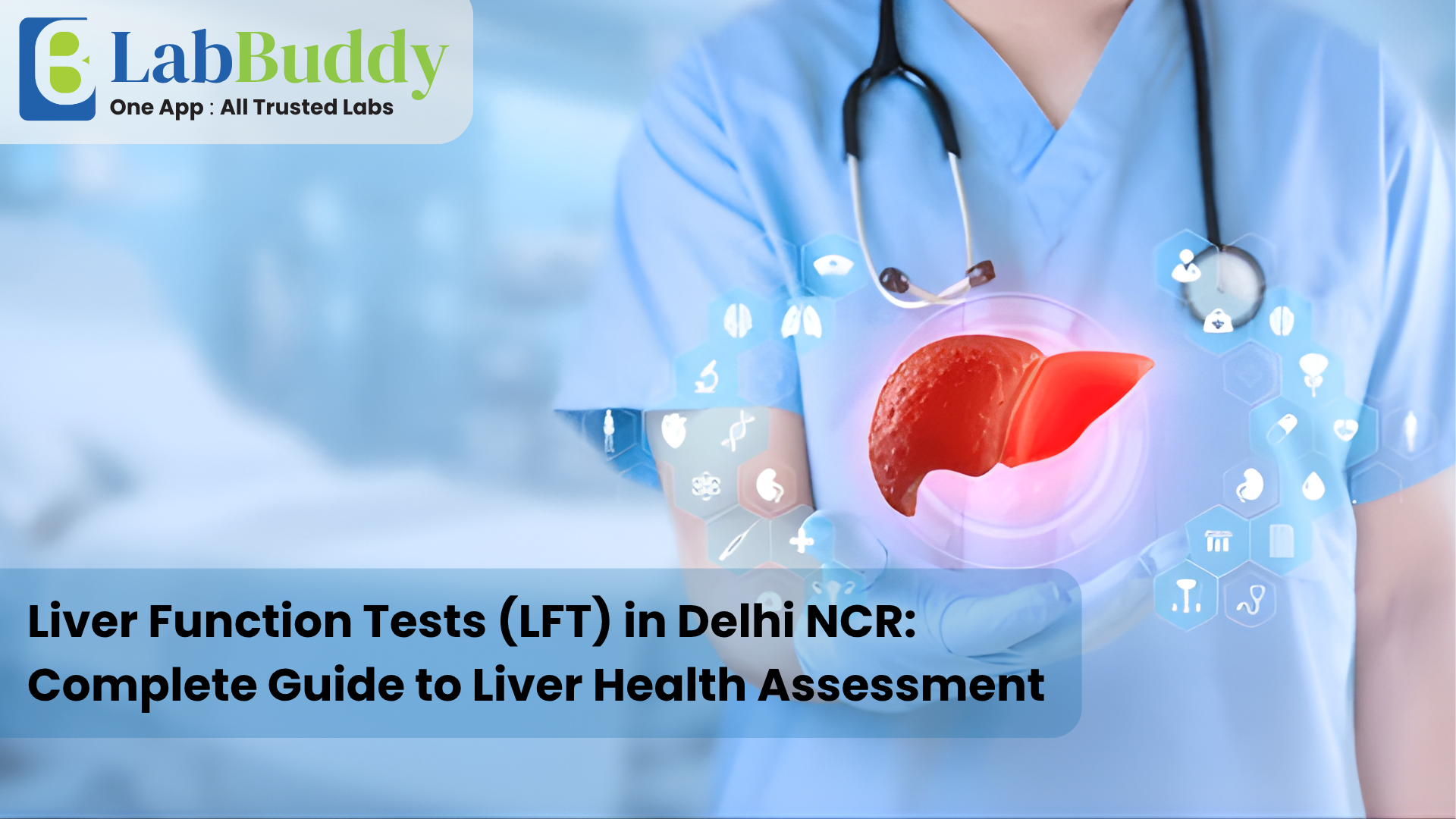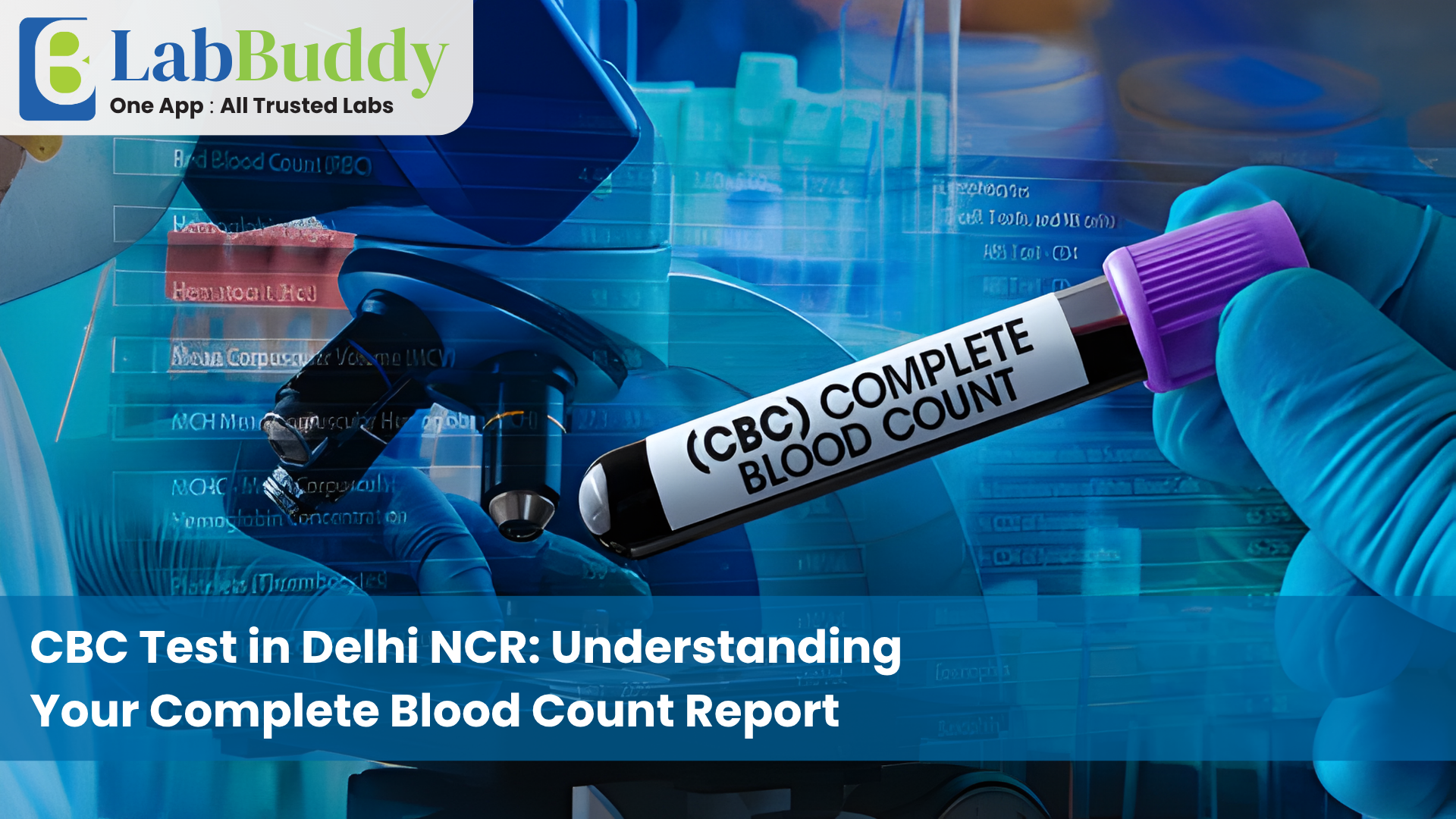Liver Function Tests (LFT) in Delhi NCR: Complete Guide to Liver Health Assessment

Liver Health in Delhi NCR: The Urban Reality
The liver, your body's largest internal organ, faces unprecedented challenges in Delhi NCR's urban environment. From processing pollution toxins to managing stress-induced metabolic changes, liver health has become a critical concern for residents across the region.
Delhi NCR Liver Health Challenges:
- High pollution exposure requiring increased detoxification
- Sedentary lifestyles affecting metabolic function
- Increased alcohol consumption and processed food intake
- Rising cases of fatty liver disease
- Stress-induced liver dysfunction
- Limited awareness about liver health maintenance
Understanding Liver Function Tests (LFT)

Liver Function Tests are a group of blood tests that assess how well your liver is working by measuring various enzymes, proteins, and substances produced or processed by the liver.
Key Components of LFT Panel
1. ALT (Alanine Aminotransferase) An enzyme primarily found in liver cells.
Normal Range: 7-56 units per liter (U/L)
Significance:
Primary indicator of liver cell damage
Most specific liver enzyme
Elevated levels indicate liver inflammation or injury
2. AST (Aspartate Aminotransferase) An enzyme found in liver, heart, and muscle cells.
Normal Range: 10-40 U/L
Clinical Importance:
Indicates liver or muscle damage
Used alongside ALT for comprehensive assessment
Helps differentiate liver from heart problems
3. ALP (Alkaline Phosphatase) An enzyme found in liver, bile ducts, and bones.
Normal Range: 44-147 U/L
Diagnostic Value:
Indicates bile duct problems
Elevated in liver obstruction
Can indicate bone disorders
4. Bilirubin (Total and Direct) A yellow compound formed when red blood cells break down.
Normal Range:
Total Bilirubin: 0.1-1.2 mg/dL
Direct Bilirubin: 0.0-0.3 mg/dL
Clinical Significance:
Indicates liver's ability to process waste
Elevated levels cause jaundice
Helps diagnose liver and blood disorders
5. Albumin A protein made by the liver.
Normal Range: 3.5-5.0 g/dL
Importance:
Indicates liver's protein synthesis ability
Low levels suggest chronic liver disease
Affects fluid balance in body
6. Total Protein Measures all proteins in blood.
Normal Range: 6.3-8.2 g/dL
Clinical Value:
Overall protein production assessment
Nutritional status indicator
Liver synthetic function marker
Common Liver Conditions in Delhi NCR
Non-Alcoholic Fatty Liver Disease (NAFLD)
Increasingly common due to urban lifestyle factors.
Risk Factors:
Sedentary lifestyle
High-calorie diets
Obesity
Diabetes
Metabolic syndrome
Symptoms:
Often asymptomatic initially
Fatigue
Right upper abdominal discomfort
Elevated liver enzymes
Alcoholic Liver Disease
Related to alcohol consumption patterns.
Stages:
Fatty liver
Alcoholic hepatitis
Cirrhosis
Urban Contributing Factors:
Social drinking culture
Stress-related alcohol consumption
Weekend binge drinking patterns
Viral Hepatitis
Infectious liver inflammation.
Types:
Hepatitis A (food/water contamination)
Hepatitis B (blood/sexual transmission)
Hepatitis C (blood transmission)
Delhi NCR Risk Factors:
Contaminated food and water
Unsafe medical practices
Unprotected sexual contact
Environmental Impact on Liver Health

Pollution and Liver Function
Air pollution increases oxidative stress
Heavy metals accumulate in liver tissue
Chemical pollutants require liver detoxification
Chronic exposure leads to inflammation
Urban Lifestyle Factors
Processed food consumption
Irregular eating patterns
Limited physical activity
Chronic stress
Sleep deprivation
Who Should Get LFT Testing
High-Risk Groups
Individuals with family history of liver disease
Regular alcohol consumers
People taking medications that affect liver
Those with diabetes or obesity
Individuals with viral hepatitis risk factors
People with unexplained fatigue or abdominal pain
Occupational Risk Categories
Healthcare workers
Laboratory personnel
Industrial workers with chemical exposure
Food service workers
Sanitation workers
Preparing for LFT Tests
Pre-Test Requirements
Usually no fasting required
Continue regular medications unless advised otherwise
Inform doctor about all medications and supplements
Avoid alcohol 24 hours before test
Stay hydrated
Factors Affecting Results
Certain medications
Herbal supplements
Recent illness
Strenuous exercise
Pregnancy
Understanding LFT Results
Normal vs. Abnormal Results
Normal Results: Liver functioning properly
Mildly Elevated: May indicate early liver stress
Significantly Elevated: Suggests liver damage or disease
Pattern Recognition
Hepatocellular Pattern: High ALT and AST (liver cell damage)
Cholestatic Pattern: High ALP and bilirubin (bile flow problems)
Mixed Pattern: Combination of both patterns
Treatment and Management
Lifestyle Modifications
Maintain healthy weight
Regular physical activity
Balanced nutrition
Limit alcohol consumption
Avoid unnecessary medications
Manage diabetes and cholesterol
Dietary Recommendations
Increase antioxidant-rich foods
Consume adequate protein
Limit processed foods
Stay hydrated
Include liver-supporting foods (leafy greens, citrus fruits)
Prevention Strategies for Delhi NCR Residents
Environmental Protection
Use air purifiers indoors
Wear masks during high pollution days
Consume filtered water
Choose organic foods when possible
Minimize exposure to chemicals
Stress Management
Regular meditation or yoga
Adequate sleep (7-8 hours)
Work-life balance
Regular health checkups
Social support systems
Technology in Liver Health Monitoring
Advanced Diagnostic Tools
FibroScan (liver stiffness measurement)
Advanced imaging techniques
AI-powered result interpretation
Telemedicine consultations
Digital health tracking
Cost and Accessibility
Testing Costs in Delhi NCR
Basic LFT Panel: ₹500-₹1,200
Comprehensive Liver Panel: ₹1,500-₹3,000
Advanced Liver Assessment: ₹3,000-₹6,000
Insurance Coverage
Most health insurance plans cover LFT
Corporate wellness programs include liver screening
Government health schemes provide coverage
Preventive health packages available
LabBuddy's LFT Testing Services
Comprehensive Approach
250+ accredited labs across Delhi NCR
Home collection services available
Quick and convenient booking
Transparent pricing
Digital report delivery
Expert consultation support
Follow-up care coordination
Quality Assurance
Standardized testing protocols
Regular quality monitoring
Certified laboratory technicians
Advanced diagnostic equipment
Reliable result accuracy
When to Seek Medical Attention
Warning Signs
Persistent fatigue
Abdominal pain or swelling
Yellowing of skin or eyes (jaundice)
Dark urine
Pale stools
Unexplained weight loss
Nausea and vomiting
Emergency Situations
Severe abdominal pain
Confusion or disorientation
Severe jaundice
Signs of internal bleeding
Difficulty breathing
Future of Liver Health Management
Emerging Technologies
Liquid biopsy for liver assessment
AI-powered predictive analytics
Personalized medicine approaches
Non-invasive monitoring devices
Telemedicine integration
Preventive Healthcare Focus
Community health programs
Corporate wellness initiatives
Public awareness campaigns
Environmental health policies
Lifestyle intervention programs
Conclusion
Liver Function Tests are essential tools for maintaining optimal health in Delhi NCR's challenging urban environment. Regular monitoring, combined with lifestyle modifications and environmental awareness, can help protect and preserve liver function.
Understanding your LFT results empowers you to make informed decisions about your health and take proactive steps to maintain liver wellness. In our rapidly changing urban landscape, prioritizing liver health through regular testing and healthy lifestyle choices is more important than ever.
Remember, liver health is foundational to overall well-being. By staying informed, getting regular checkups, and making conscious lifestyle choices, you can maintain optimal liver function and enjoy better quality of life.
Always consult with healthcare professionals for personalized medical advice and interpretation of your specific test results. Your liver health journey is unique, and professional guidance ensures the best outcomes for your individual situation.



